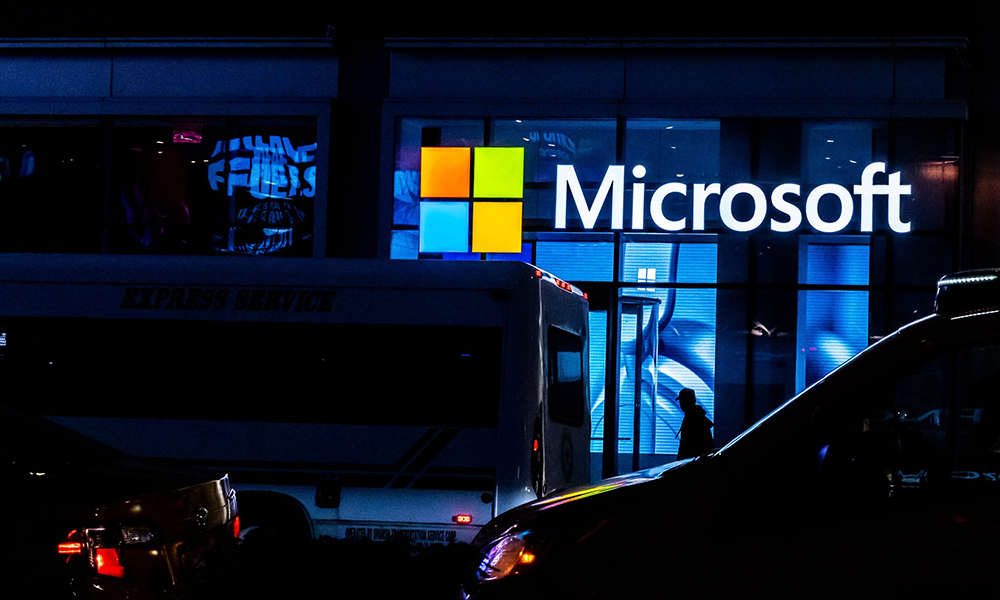
微软(Microsoft)的风险投资部门不能把母公司对热门聊天机器人ChatGPT的制造商OpenAI的早期重磅投资归功于自己。这笔由公司领导者负责的交易促使这家科技巨头转变为人工智能领域的领军企业。
但两位知情人士向《财富》杂志透露,微软的内部风险投资部门M12确实有大量资金可供支配——本财年的资金规模为2.75亿美元——该公司正在打算投资下一个大项目。到目前为止,这一数字一直是严守的秘密。
微软每年都会从资产负债表中拨出资金来补充M12基金。消息人士称,近年来,微软提供的资金数额一直保持相对稳定。该基金通常不会花掉所有的拨款。这些知情人士表示,近年来,该基金每年向初创企业投资1.5亿美元至2.5亿美元。由于该基金财务状况的机密性,这些知情人士要求不具名。
M12向《财富》杂志证实,目前其投资组合中有110项能动投资,其中包括人工智能平台Typeface.ai。上周,微软将这家初创公司的技术与其消费者洞察平台进行了整合,该技术可以帮助企业利用生成式人工智能创建社交内容。微软还投资了初创公司Split.io,并将其交付平台提供给使用微软Azure服务的开发人员。
微软于2016年成立了名为微软风投(Microsoft Ventures)的风险投资基金。据一位知情人士透露,当时该基金的年投资额不到1亿美元。
2023年,M12(“M”代表微软,“12”代表“企业家”一词包含的字母数)在米歇尔·冈萨雷斯的领导下进行了重大的战略改革。米歇尔·冈萨雷斯于2021年加入微软,担任公司的副总裁兼全球主管。此前,该基金的运作更为独立,投资以综合型为主,注重财务回报。但在2023年1月,冈萨雷斯宣布将转向投资与微软优先事项更一致的初创公司,即人工智能、云基础设施和网络安全领域。
冈萨雷斯在给《财富》杂志的一份声明里说:“在过去的12个月里,我们意识到初创公司和微软需要一个全新的M12,因此我们制定了更专注于与微软优先事项相一致的公司的投资策略。这让我们在人脉、客户和独特优势的加持下为投资组合创造了非凡的价值。”
正如《财富》杂志此前报道的那样,M12的一些内部人士对2023年的变化并不欢迎,这可能源于降低财务回报的重要性。对于微软这样一家2023年营收为2,120亿美元的公司来说,2.75亿美元的投资回报不太可能对公司产生实质性的影响。但投资那些能够提升微软自身产品的企业,可能会带来更大的战略效益。
最明显的例子是该公司对OpenAI的多达130亿美元的投资,这是由微软而不是M12完成的。通过2019年的首轮投资,微软已经成为人工智能领域的主要参与者。它将OpenAI的技术应用于Copilot,该人工智能助手几乎集成到了微软的每一款产品中。(财富中文网)
译者:中慧言-王芳
微软(Microsoft)的风险投资部门不能把母公司对热门聊天机器人ChatGPT的制造商OpenAI的早期重磅投资归功于自己。这笔由公司领导者负责的交易促使这家科技巨头转变为人工智能领域的领军企业。
但两位知情人士向《财富》杂志透露,微软的内部风险投资部门M12确实有大量资金可供支配——本财年的资金规模为2.75亿美元——该公司正在打算投资下一个大项目。到目前为止,这一数字一直是严守的秘密。
微软每年都会从资产负债表中拨出资金来补充M12基金。消息人士称,近年来,微软提供的资金数额一直保持相对稳定。该基金通常不会花掉所有的拨款。这些知情人士表示,近年来,该基金每年向初创企业投资1.5亿美元至2.5亿美元。由于该基金财务状况的机密性,这些知情人士要求不具名。
M12向《财富》杂志证实,目前其投资组合中有110项能动投资,其中包括人工智能平台Typeface.ai。上周,微软将这家初创公司的技术与其消费者洞察平台进行了整合,该技术可以帮助企业利用生成式人工智能创建社交内容。微软还投资了初创公司Split.io,并将其交付平台提供给使用微软Azure服务的开发人员。
微软于2016年成立了名为微软风投(Microsoft Ventures)的风险投资基金。据一位知情人士透露,当时该基金的年投资额不到1亿美元。
2023年,M12(“M”代表微软,“12”代表“企业家”一词包含的字母数)在米歇尔·冈萨雷斯的领导下进行了重大的战略改革。米歇尔·冈萨雷斯于2021年加入微软,担任公司的副总裁兼全球主管。此前,该基金的运作更为独立,投资以综合型为主,注重财务回报。但在2023年1月,冈萨雷斯宣布将转向投资与微软优先事项更一致的初创公司,即人工智能、云基础设施和网络安全领域。
冈萨雷斯在给《财富》杂志的一份声明里说:“在过去的12个月里,我们意识到初创公司和微软需要一个全新的M12,因此我们制定了更专注于与微软优先事项相一致的公司的投资策略。这让我们在人脉、客户和独特优势的加持下为投资组合创造了非凡的价值。”
正如《财富》杂志此前报道的那样,M12的一些内部人士对2023年的变化并不欢迎,这可能源于降低财务回报的重要性。对于微软这样一家2023年营收为2,120亿美元的公司来说,2.75亿美元的投资回报不太可能对公司产生实质性的影响。但投资那些能够提升微软自身产品的企业,可能会带来更大的战略效益。
最明显的例子是该公司对OpenAI的多达130亿美元的投资,这是由微软而不是M12完成的。通过2019年的首轮投资,微软已经成为人工智能领域的主要参与者。它将OpenAI的技术应用于Copilot,该人工智能助手几乎集成到了微软的每一款产品中。(财富中文网)
译者:中慧言-王芳
Microsoft’s venture capital arm can’t take credit for its parent’s blockbuster early investment in OpenAI, maker of the buzzy chatbot ChatGPT. That deal, which helped to transform the tech giant into a leader in artificial intelligence, was handled by corporate leaders.
But M12, Microsoft’s in-house VC firm, does have a lot of powder at its disposal—$275 million this fiscal year—as it looks to invest in the next big thing, two sources familiar with the matter told Fortune. Until now, the number has been a closely guarded secret.
Microsoft replenishes M12 each year with funds from its balance sheet. The amount it gives has remained relatively stable in recent years, the sources said. The fund doesn’t typically spend all of its allotment. In recent years, it has invested $150 million to $250 million annually in startups, said the sources, who requested anonymity due to the confidential nature of the fund’s finances.
Currently, M12 has 110 active investments in its portfolio, it confirmed to Fortune, including AI platform Typeface.ai. Last week, Microsoft integrated the startup’s technology, which helps companies create social content using generative AI, with its consumer insights platform. Microsoft has also invested in startup Split.io and made its delivery platform available to developers using Microsoft’s Azure services.
Microsoft founded its VC fund in 2016 under the name Microsoft Ventures. At the time, the fund invested less than $100 million annually, according to one source.
In 2023, M12 (“M” for Microsoft, “12” for the number of letters in “entrepreneur”) underwent a major strategy shift under Michelle Gonzalez, corporate vice president and global head who joined in 2021. The fund had previously operated more independently and invested as a generalist, focusing on financial returns. But in Jan. 2023, Gonzalez announced it would shift to fund startups more closely aligned with Microsoft’s priorities—namely in AI, cloud infrastructure, and cybersecurity.
“Over the last 12 months, we realized startups and Microsoft needed a new M12, and so we developed a more focused investment strategy tightly aligned to Microsoft,” Gonzalez said in a statement to Fortune. “This has helped us create exceptional value through connections, customers, and unique benefits for our portfolio.”
Last year’s change—unwelcome to some within M12, as Fortune previously reported—may stem from a deemphasis on financial returns. For a company like Microsoft with $212 billion in revenue last year, returns on $275 million invested is unlikely to have a material impact on the company. But funding businesses that could enhance Microsoft’s own products may bear greater strategic benefits.
The most obvious example is the company’s $13 billion investment in OpenAI—completed by Microsoft, not M12. With its first round invested in 2019, Microsoft has emerged as a major player in AI. It is using OpenAI’s technology in Copilot, the AI assistant that is being integrated into nearly every Microsoft product.






